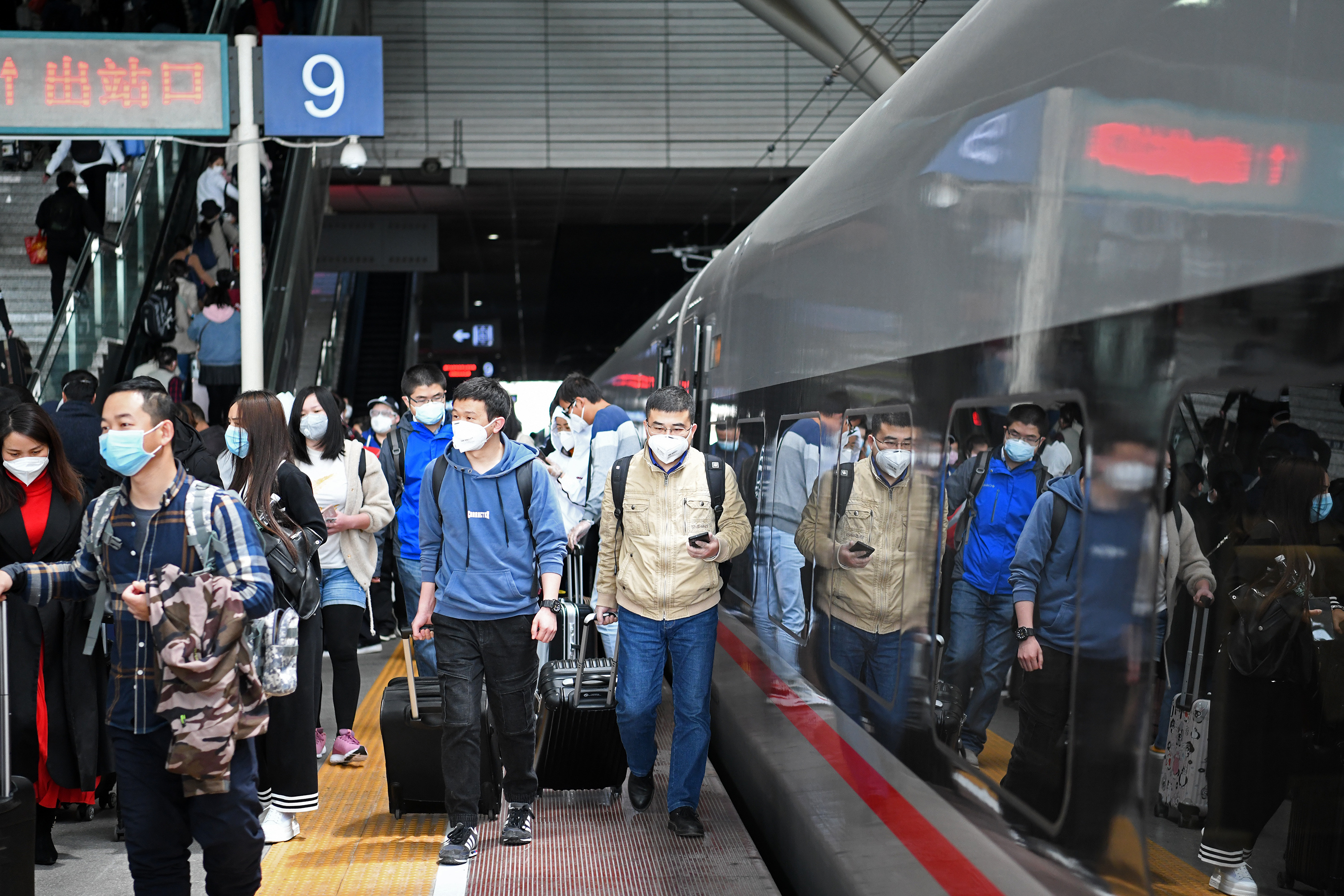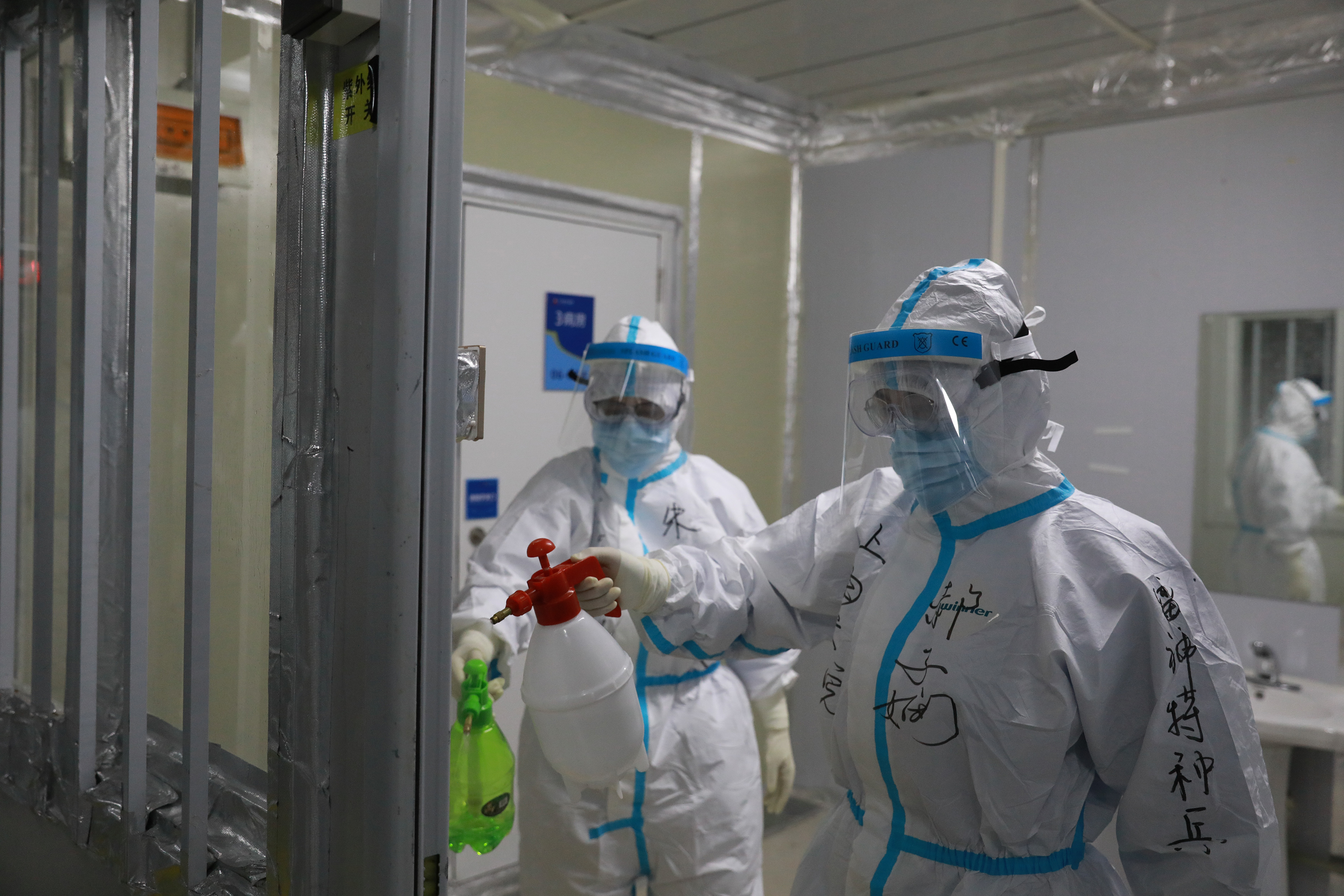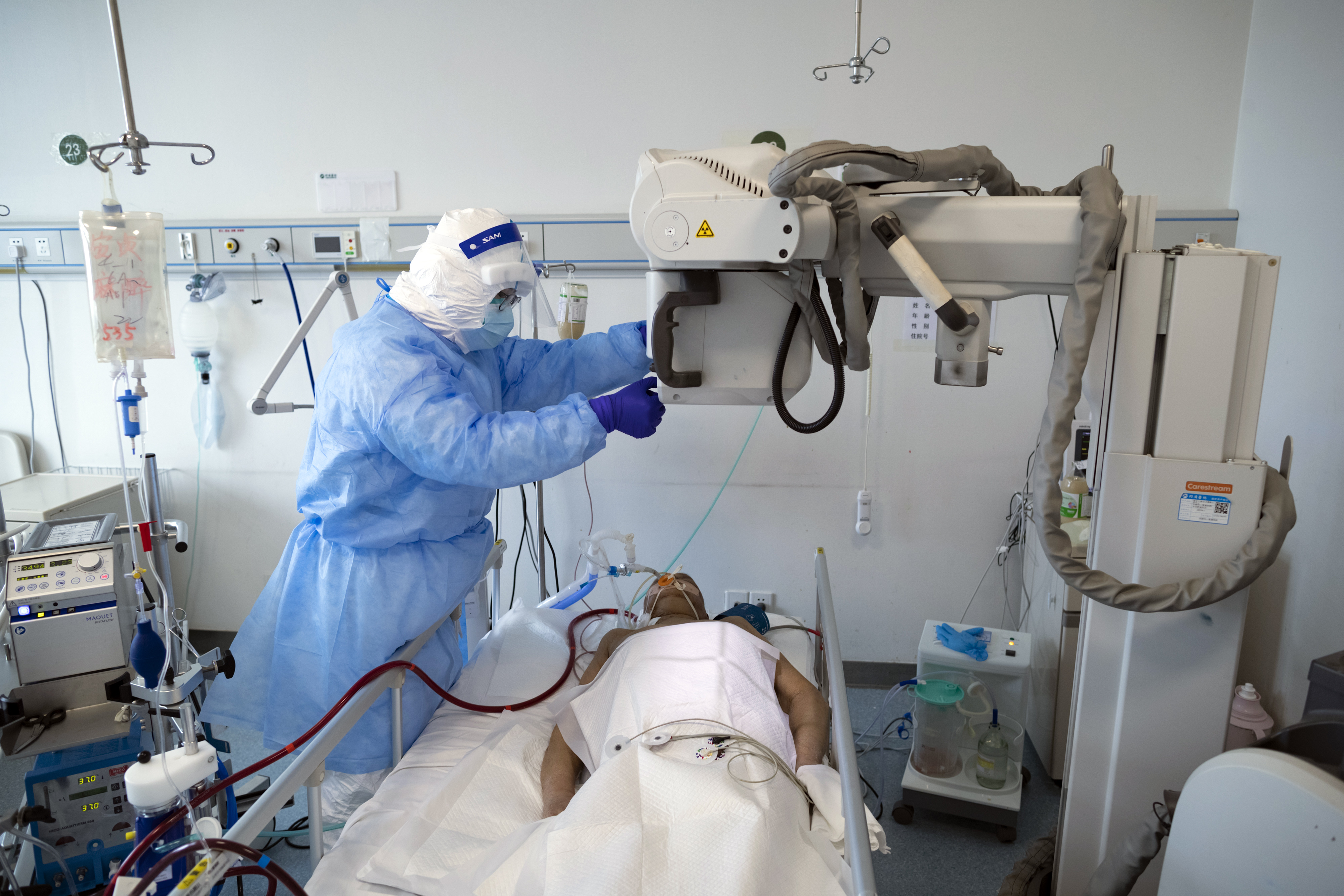
Passengers get off the high-speed train G77 from Wuhan at Shenzhen North Railway Station in Shenzhen, south China's Guangdong Province, April 8, 2020. (Xinhua/Liang Xu)
"For the accusations that China is hiding the numbers, just think about it, we have such a huge population, such a big country, you cannot hide the cases of a very vicious virus, because if you have patients, they are just patients. If people are infected, they're just infected. How can you hide them?" the Chinese ambassador said in an interview.
WASHINGTON, April 12 (Xinhua) -- Chinese Ambassador to the United States Cui Tiankai has refuted the accusations by some U.S. politicians and media outlets that China concealed the extent of the COVID-19 outbreak.
"Now let me tell you, some of the things that have been reported in the media here or claimed by politicians here are just not facts, So let me try to give you some facts," Cui said in an interview on April 3 with Ian Bremmer at weekly digital and broadcast show Gzero World, which was aired nationally on Saturday by American Public Television.
"For the accusations that China is hiding the numbers, just think about it, we have such a huge population, such a big country, you cannot hide the cases of a very vicious virus, because if you have patients, they are just patients. If people are infected, they're just infected. How can you hide them?" Cui said.

Medical workers disinfect a general ward area to be closed in Leishenshan (Thunder God Mountain) Hospital in Wuhan, central China's Hubei Province, April 9, 2020. (Photo by Li Han/Xinhua)
The fact is that China started daily briefing to the press "in the very early stage of this crisis," he said, adding the country is still doing daily briefing to the press, announcing all the updates, the numbers, the cases treated, the cases confirmed.
"And we're also sharing, at very early stage, in early January, what we have found out about the genome sequences of the virus and everything we learned from our own experience. We shared it with the world," he said.
"We even publicized all the possible treatments. We keep updating it, from time to time, including how to use traditional Chinese medicine to treat the patients. We made it public, all this information, all our experience," he said.
According to the ambassador, the first reporting in China was on Dec. 27 last year. Then on Jan. 3, China informed the World Health Organization (WHO) "of this particular situation."
"So it's just within a few days, and we alerted all the member countries of the WHO," he said. "Then a day after that, the CDCs (Centers for Disease Control and Prevention) of our two countries had their first communication."

A medical staff X-rays an ICU patient at Tongji Hospital in Wuhan, central China's Hubei Province, April 11, 2020. (Xinhua/Shen Bohan)
"So you see, I'm not a medical professional, I cannot tell you whether this kind of reporting response is sufficiently clear or good, but I think in terms of time, it was done within a very short period of time," he said.
Cui said when people came to realize this virus could be transmitted between human beings, "even before that," the Chinese central government sent experts to Wuhan to look at the suspicious cases.
"Then when they came to realize that this is transmittable between human beings, we locked down the whole city of Wuhan with 10 million people. Then actually the Province of Hubei was also kind of closed down with 60 million people," he said.
According to Cui, two days after the lockdown of Wuhan, the United States evacuated its consulate in Wuhan together with its citizens. In early February, it stopped all travelers who had been to China for the last 14 days, whether Chinese or not, from entering the United States.
"So a number of measures were taken," he said. ■



